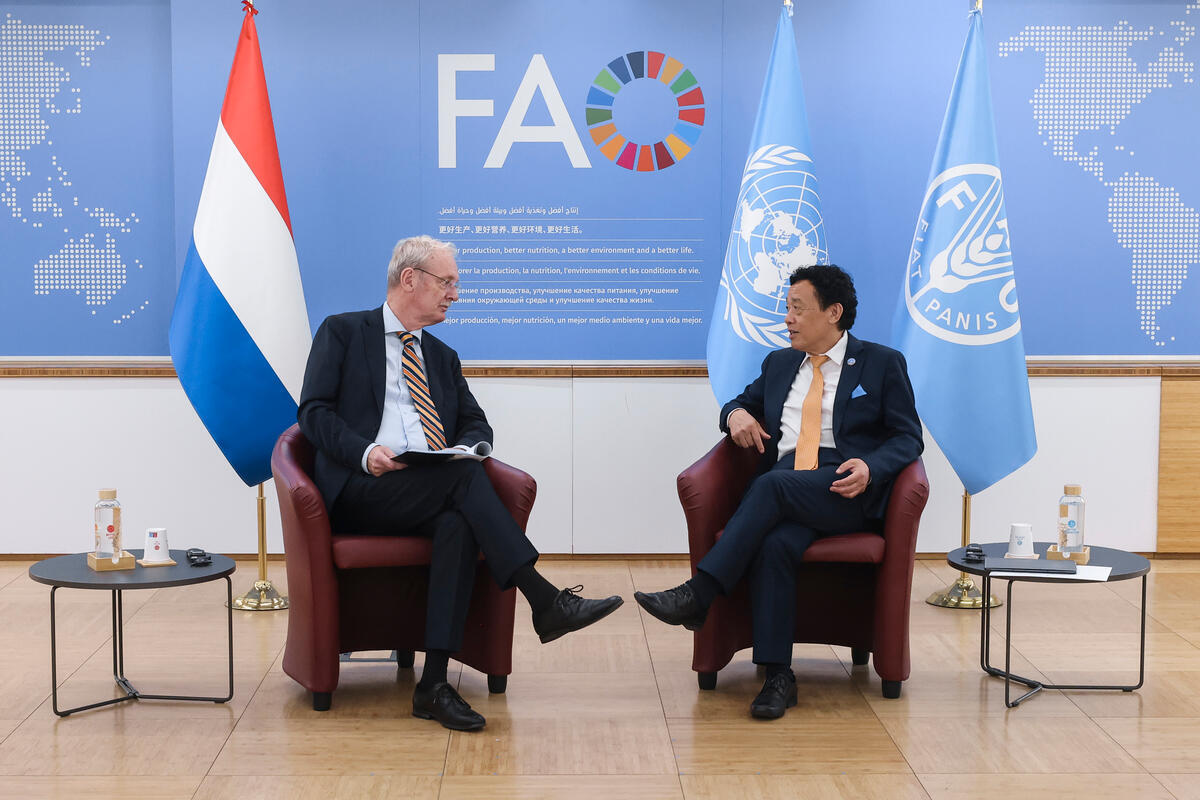Bilateral meeting with H.E. Jean Rummenie, Minister for Fishery, Food Security, Horticulture and Nature Conservation of the Kingdom of the Netherlands

©FAO/Alessandra Benedetti
Rome - FAO Director-General QU Dongyu met with H.E. Jean Rummenie, Minister for Fishery, Food Security, Horticulture and Nature Conservation of the Kingdom of the Netherlands, on the margins of the 44th Session of the FAO Ministerial Conference.
The Director-General welcomed the Minister and expressed his deep appreciation for the Netherlands’ consistent and strong support for FAO. He commended the country’s technical collaborations with FAO and also referred to the high caliber of FAO staff who have trained in Netherlands‘ academic institutions and enriched the Organization’s expertise.
Minister Rummenie shared insights from his extensive experience in international agricultural affairs and emphasized the importance of enhancing FAO’s engagement with the private sector. He noted that development cooperation from the Netherlands is increasingly anchored in public-private partnerships, reflecting a strategic shift toward inclusive and innovation-driven approaches. This, he suggested, aligned well with FAO’s evolving priorities. In response, the Director-General agreed that FAO needed to move more from its historical stance and referred to growing collaboration with the private sector in a responsible and inclusive manner.
The Director-General outlined his ambition to address the growing threat of Transboundary Animal Diseases (TADs) through a more coherent and coordinated global approach. He emphasized the need for sustained collaboration, innovation, and resource mobilization to effectively manage these cross-border threats.
In the ensuing discussion, the Minister expressed appreciation for the work of the Food Systems Coordination Hub, recognizing its role in fostering coherence and collaboration across stakeholders. On other topics, the Director-General underscored the importance of strengthening technical capacities, particularly in tropical and subtropical contexts, and highlighted the potential of innovations such as seedling technologies as a promising area for further research and innovation. The meeting concluded with a shared commitment to continued dialogue and enhanced cooperation in areas of mutual interest.
